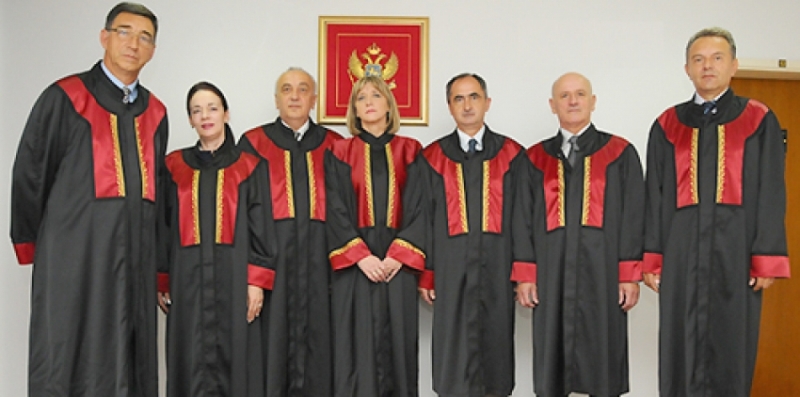
ANOTHER PROTEST OF NGOs DUE TO THE COUP IN THE CONSTITUTIONAL COURT: STATE PROSECUTORS’ OFFICE TO REACT
09/10/2020
UN SPECIAL RAPPORTEUR WROTE TO MONTENEGRIN GOVERNMENT ON POLICE TORTURE
20/10/2020JUDICIAL COUNCIL IS NOT AUTHORIZED TO EXTEND THE DURATION OF THE JUDICIAL DUTY

Foto: Savo Prelević
Human Rights Action (HRA) considers that members of the Judicial Council exceeded their authority by deciding to wait for the decision of the Constitutional Court of Montenegro on the proposal of the Judicial Council to assess the constitutionality of Article 17 paragraphs 1 and 2 of the Pension and Disability Insurance Law instead of declaring the fact that a significant number of judges was ceased from holding judicial duty due to reaching conditions for retirement.
The Judicial Council, in a statement from its session held on October 7, announced: “Considering the letters of certain court presidents in terms of Article 105 of the Law on the Judicial Council and Judges, the Council decided, by a majority, to wait for the decision of the Constitutional Court over the initiative of the Judicial Council, on the basis of which was submitted a Proposal for the assessment of the constitutionality of the Article 17, paragraphs 1 and 2 of the Pension and Disability Insurance Law with the Constitution and ratified and published international agreements. ”
HRA reminds that the Constitution of Montenegro stipulates that the duty of a judge shall cease, inter alia, “when he/she fulfills the requirements for old-age pension” (Article 121, paragraph 2). Furthermore, the Constitution prescribes in Article 128, paragraph 1, item 6 that the Judicial Council “establishes the cessation of the judicial duty”.
In accordance with Article 105, paragraph 3 of the Law on the Judicial Council and Judges, the Judicial Council is obliged to issue individual decisions on termination of the judicial duty to all judges whose cessation of office has occurred on the basis of the valid Pension and Disability Insurance Law, within 30 days upon receipt of notice about it by the presidents of the courts.
The Judicial Council has no dilemma that almost 1/3 of the available judicial staff fulfilled the conditions for old-age pension, and that according to the Constitutional provision, their judicial duty must cease, as is obvious from the text of the proposal for the assessment of the constitutionality of the PDI Law submitted by the Judicial Council.
HRA understands that the retirement of almost one third of judges will represent a significant “administrative shock” to the judiciary, which is not easy to compensate. We also believe that the Judicial Council raised a very important issue before the Constitutional Court for achieving equality between women and men. Nevertheless, the Judicial Council must not arbitrarily decide not to apply the law, i.e. it cannot arbitrarily extend the duration of judicial duties to anyone because thereby it exceeds its authority and commits abuse of office.
The individual decisions adopted on the basis of regulation which is established to be unconstitutional may subsequently be amended, i.e. their enforcement may be suspended on the basis of the Law on the Constitutional Court (Articles 66, 67), therefore, there is no justification for the Judicial Council to act arbitrarily.
This is just the latest in a series of examples of the Judicial Council applying regulations arbitrarily. We hope that the jurists, members of the Council, will be replaced as soon as possible by persons of integrity who will be ready to ensure the rule of law.







 English
English